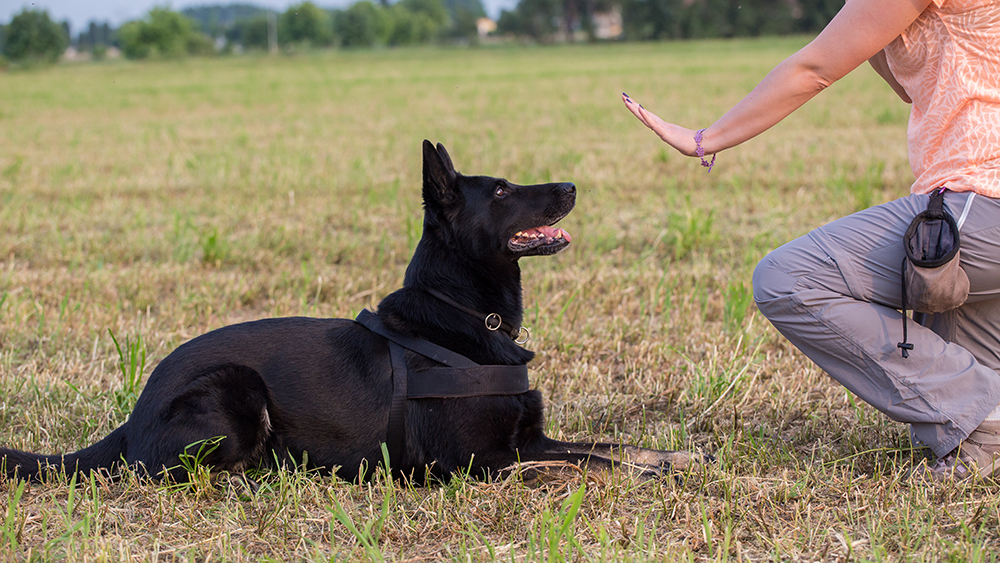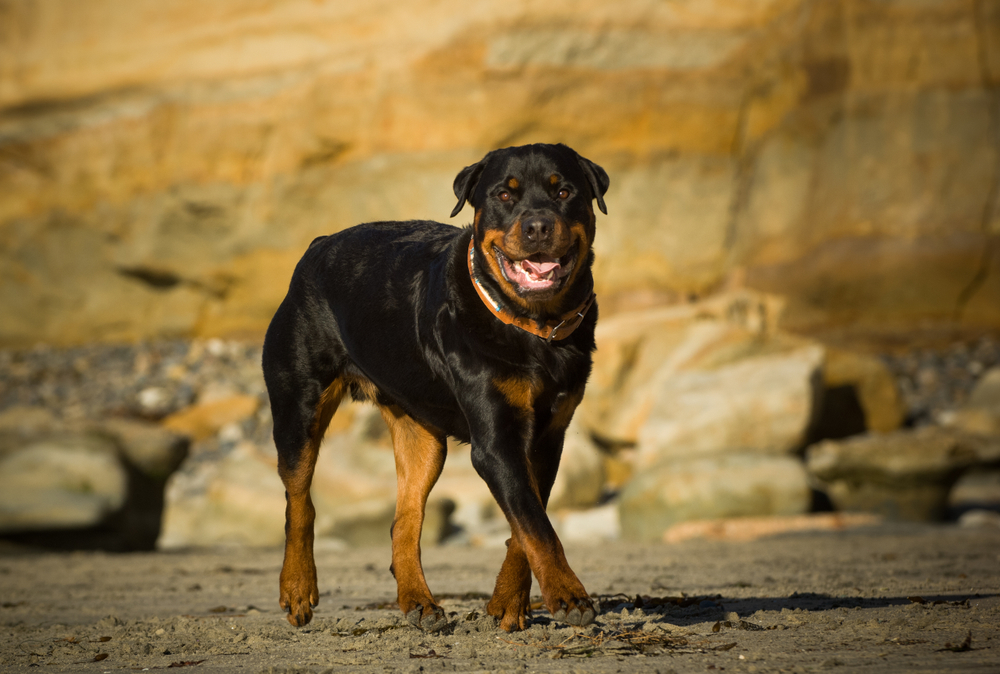Click Below to Skip Ahead
The Affenshire is a hybrid dog breed developed by crossing a Yorkshire Terrier with an Affenpinscher. This designer pup combines some of the best traits of both parents, including the Yorkshire Terrier’s bold and feisty temperament and the Affenpinscher’s loyal and affectionate nature. Read on to learn more about this interesting hybrid to determine if it’ll fit your family and lifestyle.
Breed Overview
Height:
8–11 inches
Weight:
4–9 pounds
Lifespan:
12–15 years
Colors:
Fawn, black, blue, red, gray
Suitable for:
Families with older children, folks who live in apartments, first-time owners
Temperament:
Intelligent, affectionate, mischievous, feisty
The Affenshire is an adorable toy dog breed with a big dog personality. These feisty and affectionate pups make fantastic companions and can be a great introduction to dog ownership for first-time pet parents.
Affenshire Characteristics
Affenshire Breed Puppies
Finding a breeder that specializes in Affenshires may prove challenging. We were unable to find any breeders that focus on this specific pairing, but that doesn’t mean they don’t exist.
Folks who want to adopt this adorable toy breed may want to scour their local shelters and rescues to see if there’s one awaiting their forever home. Websites like PetFinder are great places to search for adoptable animals nationwide.
Affenshire Breed Origin & History
The origin of the Affenshire is shrouded in mystery as no one can pinpoint an exact location or point in time when this hybrid became popular. We do, however, know all about the origins of the parent breeds.
The Yorkshire Terrier originated during the 1800s in the English country of Yorkshire, while the Affenpinscher is believed to have been developed during the 1600s in Germany. Yorkies were originally bred to hunt mice and rats, though they left the farms and mines in the 1850s in favor of becoming lap dogs. Affenpinschers have a similar background as they were also bred to kill rats, mice, and other similarly sized vermin until they charmed their way into the hearts of German homemakers and evolved into companions.
Temperament & Intelligence of the Affenshire
The Affenshire offers their human caretakers a fantastic blend of both parent breeds. Since the parents are often described as having a big dog personality in a tiny body, these pups will be much the same. They’re very spunky, alert, and can have a mischievous side.
These pups are highly affectionate and bond very closely with their family members. Though the parent breeds were born-and-bred ratters, they’re now primarily used for companionship, and so are their offspring.
These pups can be highly vocal and nippy if not trained and socialized correctly. Thankfully, their high intelligence makes training fun and easy. They can be prone to bouts of stubbornness, but this can be avoided by keeping training sessions short, fun, and full of rewards.
Are These Dogs Good for Families? 👪
Affenshires are a playful and curious hybrid, perfectly suited for families with slightly older children. Though Affenshires are small, they can be pretty feisty and assertive and won’t be afraid to express their dislike of particular handling or roughhousing by well-meaning children.
Potential owners need to remember that this breed’s small size does make them more fragile than bigger dogs. Adoption should be put on hold until the family’s children are old enough to know how to handle their pup safely and respect their boundaries. Though Affenshires are small, they can be quite feisty and assertive and won’t be afraid to express their dislike of particular handling or roughhousing by well-meaning children.
Affenshires thrive on attention, which makes them prone to separation anxiety. They prefer homes where someone will be with them almost all the time to keep them company. Potential adopters with demanding careers or busy lifestyles may wish to consider a doggy daycare or a pet sitter to keep their pets engaged while they’re away. A bored and lonely Affenshire can become destructive.
Does This Breed Get Along With Other Pets?
The Affenshire can get along with other dogs, but this isn’t always the case. The chances of co-existing harmoniously alongside other family pets are increased if the two animals are raised together from a young age.
Because hunting vermin is coded into the Affenshire’s DNA, they may not be the most suitable breed for homes with rodent pets like hamsters or gerbils or for families with resident cats. The Affenshire may be small, but they have a massive prey drive that can make household cats targets for games of chase.
Things to Know When Owning an Affenshire:
Food & Diet Requirements 🦴
The best food for an Affenshire is a complete and balanced diet appropriate for its life stage. Since this is a toy breed, owners may consider feeding them a small breed-specific diet, as they have unique nutritional requirements.
Affenshires, along with other small and toy breeds, need more calories per pound of body weight and a more calorically dense diet than their larger counterparts. Foods specifically made with such breeds in mind are typically higher in fat because fat offers more calories than proteins and carbohydrates per gram. However, the higher the fat content of a food, the more calories will be in each cup. This makes keeping a close eye on portions absolutely essential for an Affenshire.
Exercise 🐕
Despite their small size, the Affenshire are an active breed that needs regular exercise to stay happy and healthy. Exercise doesn’t need to be excessively strenuous; things like daily walks and off-leash activities are a great way to keep a pup physically active. Fun activities for the Affenshire can include things like agility training, fetch, nose work, and puzzles to ensure their brains and body are challenged.
Owners should know that these dogs can be sensitive to extreme temperatures, so outdoor activities should be avoided if the weather is too hot or cold.
Training 🎾
Affenshires are brilliant pups who are often eager to please their owners. Training sessions should include effusive praise and tasty treats to reward good behavior. Owners should keep in mind that these pups are likely to bore easily and may lose interest in drab or excessively long training sessions quickly. Sessions should be short and sweet to keep the Affenshire engaged and interested in their training goals.
Grooming ✂️
The Affenshire’s coat can be mixed depending on its genetics. It may be rough and stiff or long and silky, but owners should expect to brush and comb their dog several times weekly at minimum to keep tangles and mats at bay.
Some Affenshires may develop dry and flaky skin. Use a moisturizing shampoo to prevent this, but don’t bathe them too often, as it can strip the natural oils from their skin. You can use a high-quality, pet-friendly wipe to clean them in between baths.
Depending on the pup’s anatomy, their ears may be perky, relaxed, or droop slightly. They may also be prone to ear infections. Owners should check the ears regularly and clean them.
Health and Conditions 🏥
While designer dog breeds are typically considered healthier than their purebred counterparts, the Affenshire may be prone to some of the health conditions their parent breeds sometimes develop.
Small breeds, like the Yorkshire Terrier or Affenpinscher, may be at risk of developing hypoglycemia (low blood sugar). They’re particularly susceptible when they’re puppies and should be fed frequently to prevent this condition.
The Affenshire can also develop dental disease, patellar luxation, tracheal collapse, respiratory difficulties, and liver shunt. They may also develop eye conditions such as corneal ulcers.
- Early-detected eye issues
- Hypoglycemia
- Patellar luxation
- Tracheal collapse
- Liver shunt
- Dental disease
- Respiratory difficulties
Male vs Female
There is little difference between female and male Affenshires. In many other dog breeds, males are typically larger than females, but this is less the case for toy breeds.
Contrary to popular belief, no dog’s personality will be determined by their sex. That said, some studies suggest that intact male dogs may be more likely to be aggressive than their neutered or female counterparts. This isn’t always the case, but it is something potential owners may want to keep in mind.
3 Little-Known Facts About the Affenshire
1. The Affenshire may be hypoallergenic.
While no dog breed is truly 100% hypoallergenic, the Affenshire is about as close as you can get. Both parent breeds are considered hypoallergenic. However, owners should be aware that the Affenshire will still shed, but they generally produce less of the allergy-causing dander.
2. The Affenshire may have a high prey drive.
Though Affenshires are born and bred to be companion dogs, their parent breeds were both initially kept as ratters. This prey drive can be a real pain for owners, especially given their propensity to run off to chase their “prey.”
3. The Affenshire can have a varied appearance.
As is the case with any designer dog breed, Affenshire puppies can be a mixed bag when it comes to their appearance. Though the parent breeds are similar in some ways (their small size, for example), they do look very different. Even amongst the same litter of puppies, their markings, colors, and coat types can vary significantly. Affenshire puppies may have the long, silky coat of their Yorkshire Terrier parent or the shaggy, wiry coat from their Affenpinscher side.
Final Thoughts
The Affenshire is an adorable toy dog breed that’s a fantastic combination of both of its parents. It pairs the energetic and feisty nature of the Yorkie with the loyal and affectionate temperament of the Affenpinscher.
Appearance-wise, the Affenshire can be a bit of a mixed bag, depending on which parent’s DNA is more prevalent. Even puppies from the same litter can be wildly different in appearance. Some may sport the long, silky Yorkie coat, while others have the rough, wiry fur of the Affenpinscher. What we know for sure, however, is that the puppies will be adorably tiny as both parents are considered toy breeds.
Because of their small stature, however, the Affenshire is not a suitable breed for families with small children. They do make fantastic family pets, but they’re better suited for households with older children who can understand the fragile nature of a toy breed.
Potential adopters must also remember that this breed is quite needy. They can develop separation anxiety if left alone for too long and may even become nippy if not trained or socialized properly. A fair amount of effort will be required to keep these pups happy and healthy, but when your dog is snuggling up with you and showing you all the love, you’ll see that it’s more than worth it.
Featured Image Credit: (L) Didkovska Ilona, Shutterstock | (R) Vojce, Shutterstock













